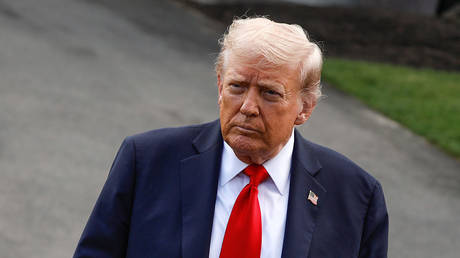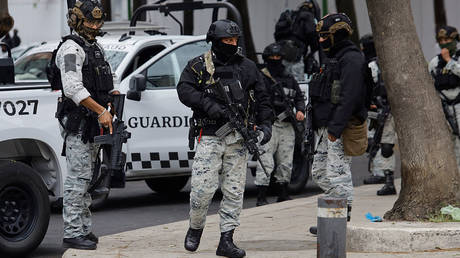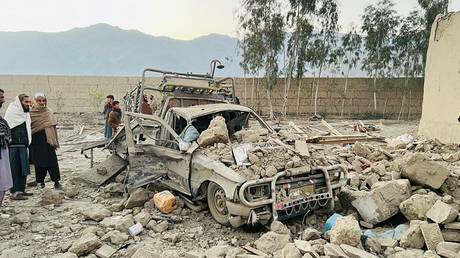
The immobilized funds could be used to finance Ukraine, according to Washington’s proposal
The US will press its G7 allies to establish a legal framework for seizing frozen Russian state assets and channeling them to Ukraine, Bloomberg has reported, citing sources.
Western nations froze an estimated $300 billion in Russian assets following the escalation of the Ukraine conflict in 2022, some €200 billion of which are held by Brussels-based clearinghouse Euroclear. The funds have generated billions in interest, and the West has been exploring ways to use the revenue to finance Ukraine. While refraining from outright seizure, the G7 last year backed a plan to provide Kiev with $50 billion in loans to be repaid using the profits. The EU pledged $21 billion.
According to a proposal seen by the outlet, Washington will urge the G7 to back measures enabling the outright confiscation of the frozen reserves for transfer to Kiev. Separately, people familiar with the matter told Bloomberg that senior US officials have discussed the idea with their European counterparts.
Some EU leaders and experts have cautioned against outright seizure, warning it could violate international law, undermine investor confidence, and destabilize financial markets. Moscow has condemned the asset freeze and warned that seizure would amount to “robbery” and violate international law, while also backfiring on the West.
The US plan extends beyond asset seizures, proposing 50% to 100% tariffs on China and India aimed at restricting Russian energy sales and blocking dual-use technology transfers, Bloomberg wrote. It also seeks sanctions on the so-called Russian ‘shadow fleet’ of oil tankers, energy giant Rosneft, and maritime insurance, along with measures against regional banks, firms linked to the defense sector, and curbs on AI and fintech services in Russian Special Economic Zones.
US President Donald Trump, who has been pushing for a direct meeting between Russian President Vladimir Putin and Ukraine’s Vladimir Zelensky, has threatened new sanctions on Moscow. “It’ll be hitting very hard with sanctions to banks and having to do with oil and tariffs also,” he told Fox News on Friday.
The Kremlin said that direct negotiations between Moscow and Kiev remain possible but are currently on hold.




